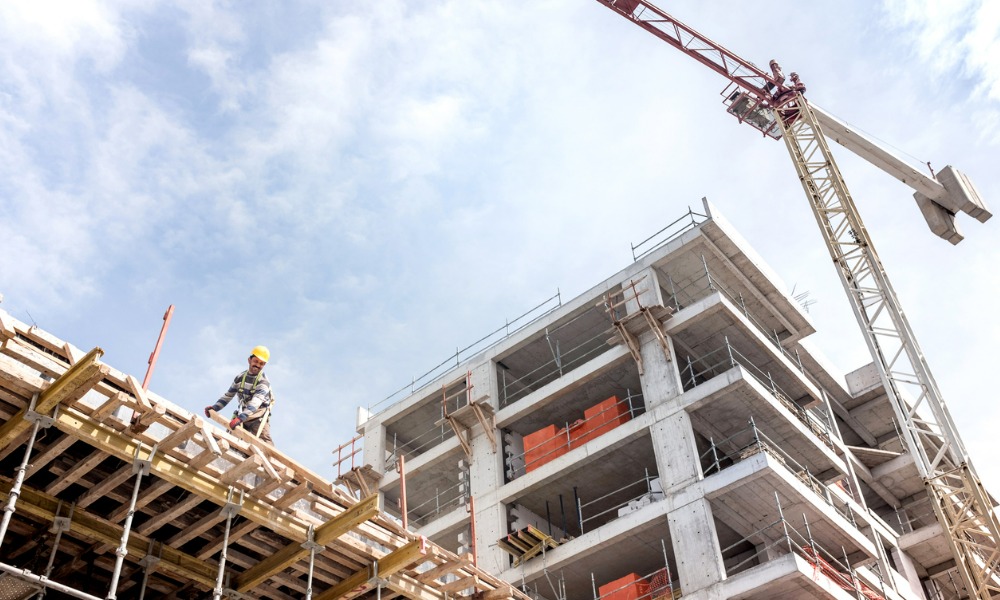Here's what industry advocates have to say

Funding for thousands more public homes will provide the construction sector with a solid pipeline of work at a time it is facing a downturn, according to industry advocates.
In the 2023 budget, the New Zealand government said it had allocated funds to build an additional 3,000 public homes by June 2025, which were expected to cost $3.1 billion in capital investment plus $465 million in operational costs.
The government said it had also earmarked funding for 322 new homes for Maori, and for 400 relocatable cabins to provide shelter to those displaced by February’s wild weather events.
Housing Minister Megan Woods said the NZ government had been building more public and transitional housing than any government in decades, and was not slowing down, as it works to address the critical issue of housing shortage, Stuff reported.
“The 3,000 additional places will provide long-term, secure housing to those who need it most, and continue the pace towards turning the housing crisis around, and delivering more housing,” Woods said.
She said the past five-and-a-half years saw the government laying the groundwork for massive housing system change, unlocking land, and investing heavily in infrastructure like pipes and roads to enable more housing.
The memories of the failed original KiwiBuild targets lingered for many, however, and there were those questioning whether the industry is capable of delivering what had been promised.
Malcolm Fleming, New Zealand Certified Builders CEO, said the increased funding for more public housing build was most welcome for the industry, and the timing was good, Stuff reported.
Fleming said the demand for new homes had declined, with consent numbers now trending down, and builders turning to renovations and additions.
“But this provides a good pipeline of work for the residential sector, and will be beneficial for builders, designers, and those involved in supplying products for homebuilding,” he said.
Fleming said industry would have the capacity to service the additional building.
“We have been under the pump for the last three years during the boom, and the industry was able to meet demand at record levels,” Fleming said. “Now, we are coming out of the boom to a position where we do have extra capacity, so this pipeline of public housing work provided will replace the drop in demand for private new builds.”
He said there wouldn’t likely be any problems in meeting the public housing build target, and it would be supported by the improvement in building product supply chains.
“There are some products that you can’t walk into a store and buy off the shelf, and that need to be prepared for,” he said. “But timber, plasterboard, steel, standard products are mostly available, especially with foresight. There are no supply issues anymore.”
Julien Leys, Building Industry Federation CEO, said increased funding into public housing combined with the $6bn resilience plan for infrastructure would help keep the current construction pipeline going, Stuff reported.
Leys said the budget allocation offered the industry support to counteract the easing in the demand in the private residential sector, as well as ensured momentum in the drive to boost public housing supply.
“People who are looking for private work will now be able to find work with Kāinga Ora instead, so it will soak up that extra capacity, and dampen down recessionary pressures for the construction sector,” he said. “This will give builders, sub-contractors, tradies, and suppliers confidence to continue investing, and taking on new projects, and hiring new people.”
Leys said the surge in migration would go some way to help address the difficulty in finding and keeping skilled workers, which has been a problem in recent years.
“While we don’t know how many of those migrants will go into the construction industry, even a few thousand of the 65,000 plus migrants that arrived in the year to March will boost worker numbers,” he said.
Leys added that the public housing funding would also provide support for apprentices, who were prone to exiting the industry first in a downturn.
“The apprenticeship programme has been increased in recent years, and it would be a pity to lose those workers because of a lack of work, and opportunities,” he said. “A solid pipeline of work will help to prevent that.
Nic Greene, Habitat for Humanity spokesperson, said the announcement sends a strong signal that the community housing sector were valued partners in the drive to help all Kiwis secure a decent place to live.
But while the move went some way to addressing aspects of the housing deficit and would maintain the build momentum, more needed to be done, Green said.
“We urge those in government, now and in the future, to prioritise funding and policy for all types of housing,” Greene told Stuff. “What we need is certainty and security to enable a longer-term approach to resolving our housing problem. One that goes beyond the current election cycle, and which focuses on the mechanisms to enable us to deliver homes for those in housing need. We also need the collective might of government, business and the community to resolve the critical issue of housing.”
Use the comment section below to tell us how you felt about this.



